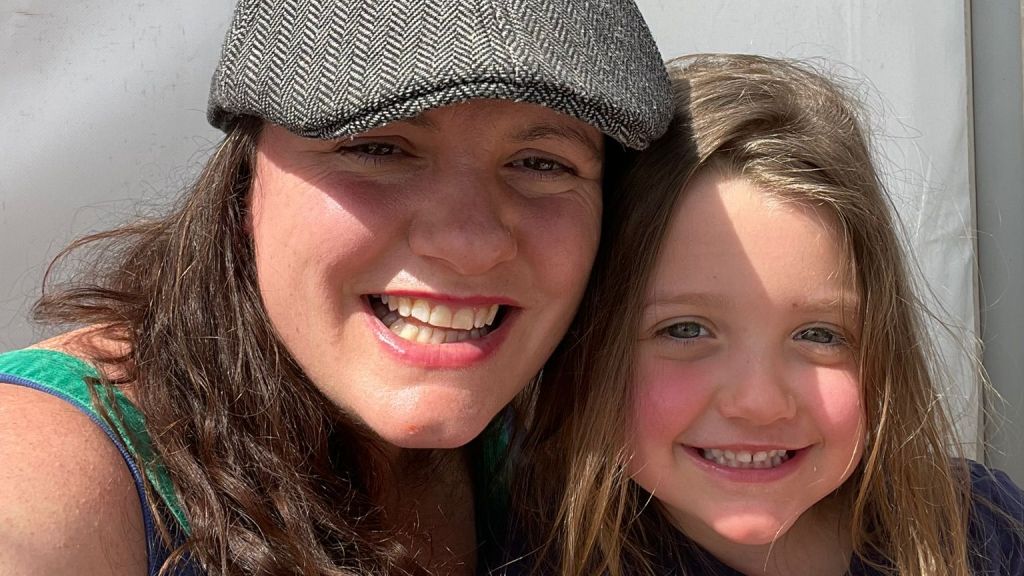Surviving Cancer: A Journey Through Financial Struggles and Resilience
Steve Pointon’s discovery of a kidney tumor in 2016 set off a dramatic shift in his life, altering not only his health but his career and finances almost instantly.
At 45, Pointon, alongside his wife Clare, was navigating the challenges of parenthood with an 18-month-old son and the anticipation of a second child. Recently relocated to a new home in Crewe, Pointon held a management position in a security company, earning £35,000 per year, a salary that initially seemed sufficient to cover their mortgage.
In a matter of weeks, he underwent kidney removal surgery. Due to the terms of his employment, he was limited to statutory sick pay of only £88 weekly, but negotiations allowed him to receive half of his regular salary during his six-week absence from work.
“Financially, it was a struggle, but we managed to get by. Then, after 18 months, follow-up scans revealed that the cancer had metastasized to my stomach lymph nodes,” he shared.
Upon learning that he had terminal cancer and a prognosis of four years at most, Pointon was eligible for an experimental high-dose interleukin therapy. After enduring 20 weeks of immensely challenging treatment, the cancer was eliminated, but the financial burden persisted.
“The treatment took a toll on my body. I tried returning to work briefly, but I quickly had to take more sick leave because I simply couldn’t cope,” Pointon explained.
With only statutory sick pay and Clare’s modest earnings as a nursery nurse, Pointon found himself £5,000 into his overdraft. His parents stepped in to help with groceries, preventing the family from falling behind on mortgage payments.
“Without the support of my family, we would have likely lost our home,” he stated. Now a trained counselor working with the charity Action Kidney Cancer, he reflected on the degrading experience of being unable to provide for his family. “I couldn’t even afford diapers for my child.”
According to Cancer Research UK, approximately 3.5 million individuals in the UK live with cancer, and currently, around 50% of those diagnosed are expected to survive for at least a decade. However, financial struggles can persist long after treatment.
A survey conducted by Mission Remission with 1,230 cancer survivors revealed that 75% faced difficulties returning to work. Of those who managed to go back, 66% experienced a drop in their annual income post-recovery, with 31% reporting a salary cut of £10,000 or more.
The financial ramifications also extend into the long term—67% of individuals who have survived over a decade post-diagnosis still face negative financial impacts.

Laura Fulcher, founder of Mission Remission, was unable to return to her teaching position following her bowel cancer diagnosis in 2014. Though her tumor was successfully removed, she later encountered additional chronic health issues.
“I endured significant fatigue for years and faced bowel obstructions that required multiple hospital visits, severely limiting my quality of life,” Fulcher noted. The return of her health issues in 2018 manifested as thyroid cancer, which was also subsequently treated.
With two young children, ages one and five, Fulcher estimates that her income loss since her diagnosis amounts to roughly £130,000. “The prevailing sentiment is one of gratitude for surviving, but it creates an awkward guilt when expressing that cancer has financially drained me by £130,000,” she stated.
Resources Available for Support
Reframe Cancer reports that the average duration of work absence due to illness is around 15 weeks. While some employers have sick pay policies, others may struggle to offer such support, legally requiring only statutory sick pay at £118.75 weekly for up to 28 weeks.
According to the Equality Act, discrimination against employees with a current or prior cancer diagnosis is prohibited, obligating employers to make reasonable adjustments, such as flexible working hours, to facilitate a smooth return to work.
Mark Stephenson from Reframe Cancer highlighted, “Many find that the transition period from treatment to work can be the most challenging as they cope with ongoing side effects from chemotherapy or radiotherapy.”
For those unable to return to work, the benefits system can provide essential financial support, though the application process can be daunting. A staggering 75% of cancer survivors reported receiving benefits after their health improved, yet 88% claimed the system needed simplification.
“Navigating the benefits system can be overwhelming, so it is advisable to seek independent guidance from charities, local councils, or Citizens Advice,” Anna Ellis from Maggie’s cancer support charity encouraged.
Individuals with savings below £16,000 can qualify for universal credit, ranging from £316 to £628 weekly for basic living expenses, plus additional assistance for housing, caregiving, and children. Those with higher savings may access Employment and Support Allowance (ESA), starting at £92 per week but potentially reaching £140.
Personal independence payments (PIP), which vary between £29 and £110 weekly, can aid with mobility and daily expenses for those with ongoing health conditions, and they are not means-tested. Furthermore, free prescriptions are available for patients undergoing cancer treatment.
People diagnosed with cancer should promptly contact their credit card companies, mortgage lenders, and local authorities, as some may offer payment holidays. The government also provides a Support for Mortgage Interest loan to assist with interest payments, repayable upon home sale. Additionally, cancer patients or survivors may qualify for reductions in council tax during periods of reduced income.
Strategies for Protection
Protection insurance can serve as a crucial safety net. Critical illness insurance, which covers various severe illnesses, pays out a lump sum upon diagnosis. According to Reassured, the average monthly cost for such a policy is £27.90, with payouts averaging around £54,000.
The payout amount may vary based on cancer severity, cautioned Kevin Carr from Carr Consulting. Understanding the nuances of your policy is essential, as less advanced diagnoses might yield only partial payouts.
Income protection insurance is another potential avenue, offering regular payments of 50-70% of your salary until returning to work, retiring, or passing away. Due to complex criteria for receiving payouts, it’s crucial to thoroughly review any policy documentation.
Employees should check if their employers provide critical illness or income protection coverage before obtaining independent policies. Notably, these insurances should be acquired prior to any health diagnosis. Carr advised, “Securing coverage becomes increasingly expensive and challenging even years after being cancer-free.”




Post Comment